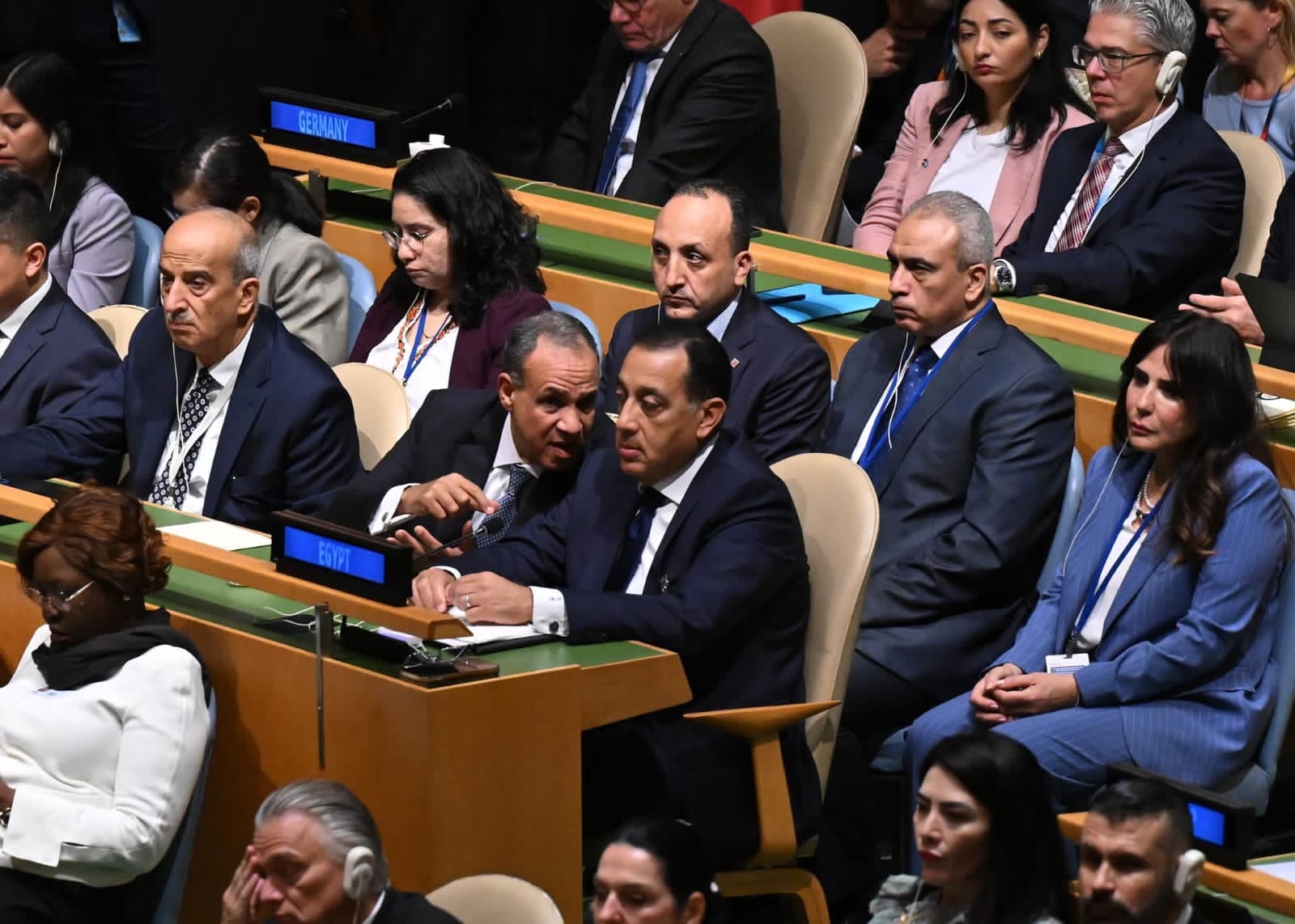Energy was the main focus of a meeting held between President Nikos Christodoulides and Egyptian Prime Minister Mostafa Madbouly on the sidelines of the United Nations general assembly Tuesday.
According to government spokesman Konstantinos Letymbiotis, “particular reference” was made to the Kronos and Aphrodite natural gas fields, which are located in Block 6 and Block 12 of Cyprus’ maritime exclusive economic zone (EEZ) respectively, with plans afoot for natural gas from both fields to be transported to Egypt for liquefaction before being exported.
He added that Christodoulides and Madbouly had also discussed “cooperation in broader interconnection projects in the sectors of electricity and renewable sources”.
Additionally, he said, Christodoulides had stressed “the importance the Republic of Cyprus attaches to regional cooperation with leaders of the wider region”, in view of Cyprus undertaking the Council of the European Union’s rotating presidency in the first half of next year.
With this in mind, he added, both Christodoulides and Madbouly had “referred extensively to the strengthening of relations between the EU and Egypt”, with Christodoulides said to have “confirmed that the Republic of Cyprus will continue to support Egypt within the EU’s framework”.
He said Christodoulides had also “reaffirmed his appreciation for Egypt’s consistent and longstanding support for the Cyprus issue, both at a bilateral level and within the framework of international organisations”.
Christodoulides, he added, had also highlighted the “very important” upcoming EU-Egypt summit, which is set to take place on October 22.
He said the pair had also “exchanged views on regional developments, such as the situation in Gaza, Lebanon, Libya, and Sudan, with a shared understanding of the need for political solutions and to prevent further destabilisation of the region”.
Earlier this month, members of the Egyptian government had travelled to Nicosia and announced that natural gas from Cyprus’ EEZ will be exported to Europe via Egypt in 2027.
That target will depend on a final investment agreement being signed by the Egyptian government and the consortium comprising French multinational corporation Total and Italian energy company Eni, for the exploitation of the natural gas from the Kronos field.
The Egyptian government was in February designated as the “host government” for Block 6 of Cyprus’ EEZ.
Given the proximity of the Kronos reservoir and Block 6 to Egypt’s Zohr gas field, which Eni also operates, Eni will be able to use its own infrastructure to take the Cypriot natural gas to the Segas liquefied natural gas (LNG) terminal in the Egyptian port city of Damietta.
Energy Minister George Papanastasiou had earlier explained that the planned agreements “cover the entire supply chain” from the liquefaction of the natural gas, which will take place in Damietta, through to the export of the LNG to Europe.
Seabed surveys to find a sinking point for the pipeline which will take natural gas from Cyprus’ EEZ to Egypt for liquefaction began in June, with the initial aim being for natural gas from the Aphrodite gas field to be taken to Damietta.
That came after the governments of Cyprus and Egypt, as well as American multinational corporation Chevron, Israeli energy company NewMed Energy, and the BG Group, which is owned by Royal Dutch Shell, signed an agreement which, according to the Cypriot government, established “the framework for the effective commercialisation” of the gas in the field.
That agreement was signed alongside the agreement relating to Block 6 in February.
Egyptian Petroleum Minister Karim Badawi had earlier this month commented on the prospect of further cooperation between Cyprus and Egypt on the matter of energy, and said that while last week’s meetings had focused mainly on the Kronos gas field, “it is not surprising that we are also working on cooperation regarding the development of the Aphrodite gas field through the facilities in Egypt”.
He said that on this matter, there has been “significant progress”.
“Our cooperation in the energy sector with the Republic of Cyprus is very important and is expanding daily. We are here to support the Republic of Cyprus in the full development of its energy reserves, so that it can exploit them and make them available to its citizens and to European markets which need energy,” he said.






Click here to change your cookie preferences